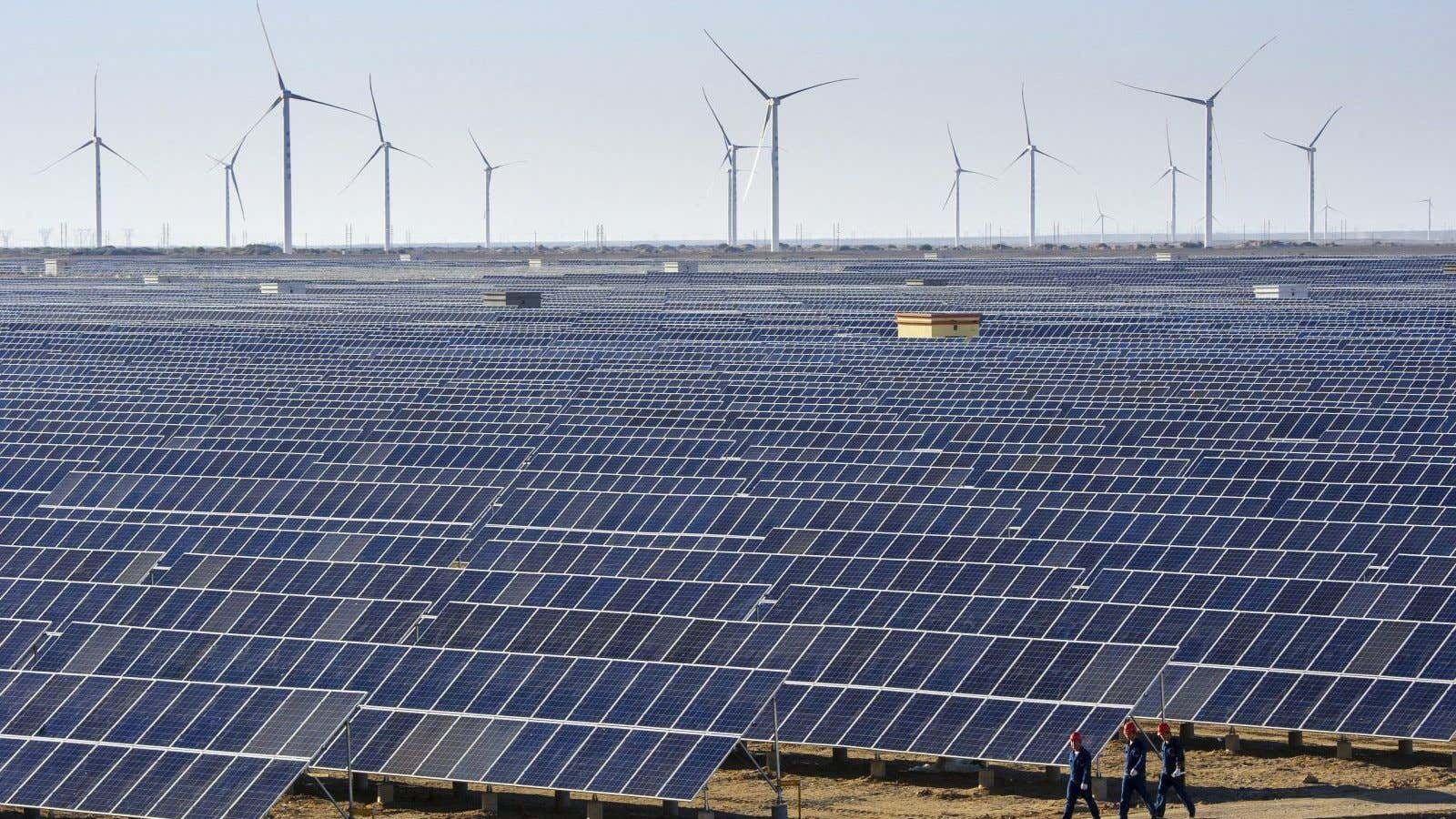Consuming less will only get us so far—we also have to invent and invest our way out of the climate crisis. Luckily, the technology to remove carbon emissions from the economy is already happening. The energy intensity of the global economy, a measure of energy consumption per unit of gross domestic product, has fallen more than 32% since 1990.
But one key trend has reversed: The number of patents filed for climate change mitigation technologies more than doubled between 2005 and 2012, according to a recent analysis by researchers at the International Energy Agency (IEA) and the Organisation for Economic Co-operation and Development (OECD). But since then, new patent filings for power, transport, buildings, manufacturing, and carbon capture and storage have plunged, bucking the general trend for global patents. New filings for carbon capture and storage and clean energy patents are down 44% and 29%, respectively, from their peaks, for example.
Some of this is to be expected. As technologies mature, the rapid pace of innovation slows. That’s happening in fields such as solar photovoltaic plans (PV) for energy generation, which now accounts for around half of the new renewable energy assets built worldwide. New solar technologies for energy storage and systems integration are keeping pace with before, while solar PV patent filings slow, which suggests the focus in solar-power research is shifting. Sectors such as maritime and air transport, where policymakers are discussing stricter emissions regulations, have also seen steady rates of patent approvals.
But the overall trend is a warning sign for those concerned about the climate. There’s generally a long gap between new ideas and the and cost reductions they can bring, potentially reaching out over a decade or more, note the researchers.
The trend doesn’t surprise Stephan Ouaknine, managing partner of the clean-tech global investment fund Inerjys. “It’s a massive problem for the climate,” he wrote by email. “Right now, new climate technologies are caught in a bankability trap: no one will buy them until they are commercially proven, yet they aren’t proven until they are used commercially.”
